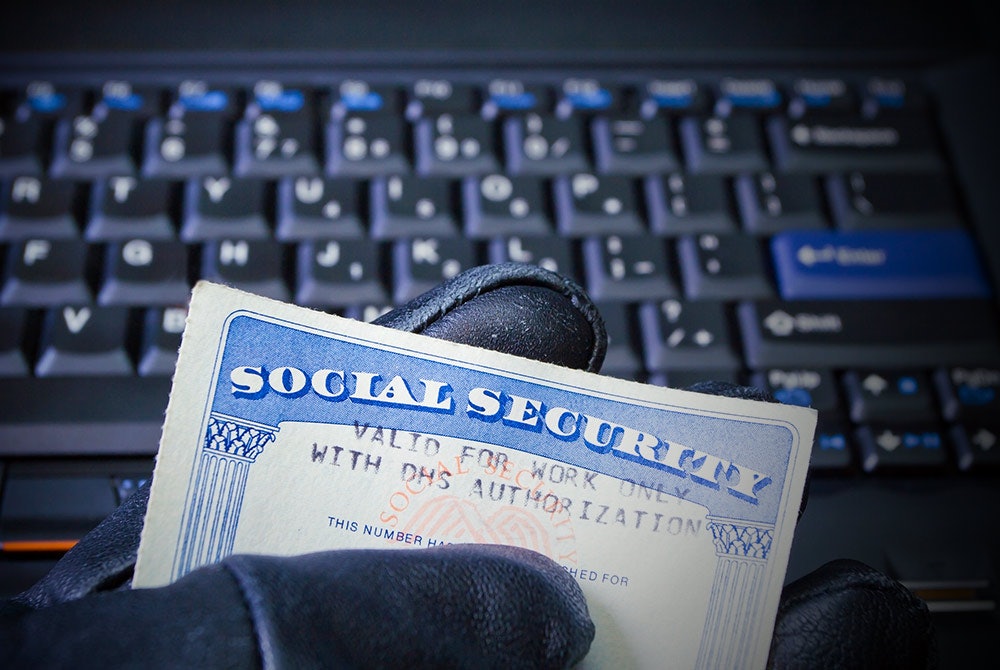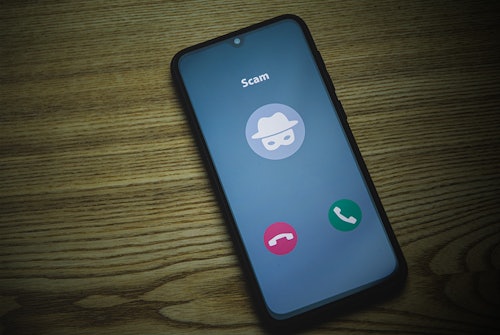Social Security Administration In Depth
- Social Security Benefits
- Types of Social Security Scams
- How to Beat Social Security Administration Scams
- Protection Against Social Security Scams
The Social Security Administration (SSA) is an independent agency of the federal government that administers Social Security—an insurance program that provides financial support to those who have retired, have a disability or are collecting survivor benefits. The SSA’s goal is to help those unable to or no longer working to maintain basic well-being. About 65 million people receive Social Security benefits in the United States.
The money from Social Security comes from taxes paid by every working person in American. When you work, you pay a Social Security tax. That tax goes into a general Social Security fund used to pay those receiving Social Security benefits. The money you pay for Social Security does not go into a personal account.
Social Security Benefits
Many people know Social Security as the way people get paid after retirement. While that is one of the benefits of Social Security, it only makes up a small portion of those receiving Social Security aid. The largest group receiving Social Security is children who have lost a parent. These people receive survivor benefits, meaning they're provided with financial support through Social Security since they're often too young to make money for themselves.
To receive Social Security benefits, you must earn 40 Social Security credits. You make one credit for every $1,470 you earn, but you can only gain four credits a year (most people earn 40 credits after about ten years of work). You may be able to receive Social Security benefits with less than 40 credits if you're applying for disability or survivor benefits.
If you want to receive retirement benefits, you can take Social Security early; however, your payment rates gradually increase with your age, which is why many people try to work until at least 70 years of age to receive full benefits.
Everyone born in the United States, residents, and citizens get a Social Security number (SSN). The government uses this number to track your earnings and your Social Security benefits. Your Social Security number should remain confidential—you should only share your Social Security number with legitimate businesses that need your finical information, such as employers to help track earnings or banks if you're applying for a loan.
Types of Social Security Scams
Many scams impacting the Social Security Administration target older adults receiving retirement funds and those on Social Security. However, these scams can target anyone with a Social Security number, which is a huge number of people.
Some of the most common Social Security scams include:
- Phone scams
- Email scams
- Text message scams
- Identity theft
Fake Social Security Calls Are Very Common
Social Security phone scams are widespread. To stay safe, don't ever provide any personal information to anyone over the phone, including your SSN, bank account or credit card numbers, or passwords.
Phone Scams
One of the most popular Social Security scams involves a scammer calling you and saying you owe money to the SSA. They'll usually request the money by gift cards, wire transfers, internet currency, or pre-paid debit cards. It's essential to know the Social Security Administration will never call you unexpectedly, and they will never ask you to pay a fine over the phone.
Email Scams
Like Social Security scams via phone calls, email scams will state you owe a fine to Social Security and ask you to pay the fine by sending money electronically.
You may also receive email scams if you sign up for a My Social Security account, the official online portal for the Social Security Administration. These types of email scams may ask you to sign in to your account using a fake link or may ask you to provide personal information to help solve an unknown problem on your account.
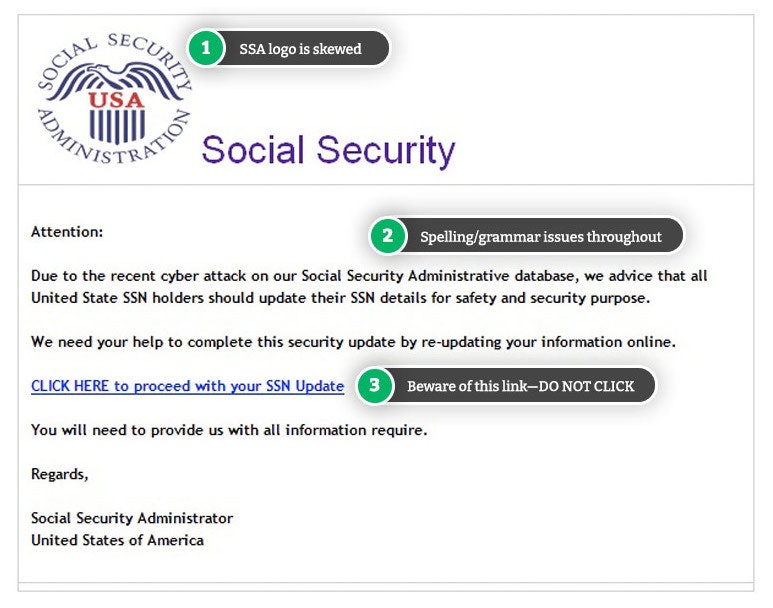
Text Message Scams
Scammers use similar tactics to phone and email scams but will instead send a message through text. The text message will usually state some problem with your Social Security and ask you to either provide personal information such as your Social Security number or ask you to pay a fine. The text may also include a fake link and ask you to follow the link and fill out personal information on a webpage.
Identity Theft
This scam can happen to anyone with a Social Security number and is one of the most damaging scams. In an identity theft scam, a scammer gets ahold of your Social Security number and typically uses it to open a credit card account, take out a loan, or steal your Social Security benefits. The scammer can obtain your Social Security number by impersonating the Social Security Administration and asking you to provide your number through a phone call or email. They may even send you a letter in the mail directing you to a fake website.
Social Security Administration
It's important to verify links and contact details to beat imposters.
How to Beat Social Security Administration Scams
Scammers have grown more sophisticated in recent years, making it more challenging to identify someone impersonating a Social Security Administration employee and beat the scam. Remember, the SSA won’t ever:
- Call you to address a problem
- Threaten you with arrest or other action against your SSN
- Ask for payment via wire transfer or gift card
The SSA Won’t Call You
If there is a problem with your social security payments or your eligibility, the SSA will send you a letter as initial contact and won't call you. The Social Security Administration will only call you if you've requested a phone call or if you have ongoing business with them.
If someone calls you claiming to be with the Social Security Administration and you're unaware of why they're calling, it's a scammer, and you should hang up.
The SSA Will Never Threaten You
Anyone you speak with from the Social Security Administration should be polite, professional, and kind. They will never threaten you. They cannot suspend your Social Security number or arrest you, and they will not demand a payment from you.
The SSA will address any changes or problems with your Social Security benefits in a letter, never on an unsolicited phone call, text, or email. Anyone who does any of this is not with the Social Security Administration, and you should cease contact with them.
The SSA Will Never Ask For Wire Transfers or Gift Cards
If you need to make a payment to the Social Security Administration, they will send you a letter with payment instructions. They will never ask you to pay them with gift cards, wire transfers, cash, or internet currency. If someone asks for any payment through a phone call, email, or text message, it's a scam.
Protection Against Social Security Scams
If you receive contact from a scammer, report the Social Security scam right away. Don't let embarrassment stop you from reporting the scam—it's essential to report it as soon as possible, especially if you've provided someone with your Social Security number.
If you've provided someone with your Social Security number or other personal information that could lead to identity theft, report it to the Federal Trade Commission (FTC), and they'll set you up with a recovery plan.
How to Get Your Money Back
While you can report a scam through the Social Security Administration and get help from the Federal Trade Commission, if you suspect identity fraud, there's not much aid in place to recoup the money you may have sent a scammer. Unfortunately, once you've sent someone money, you likely won't get it back.
Educate Yourself About Social Security Scams
Even though the Social Security Administration can't do much in getting money back from a scammer, they did start the National "Slam the Scam" Day in 2020. They designed this program to educate the public about government imposter phone scams after a significant rise in scams during the COVID-19 pandemic.
The goal is to provide you with resources to help you identify and avoid scams. Many of their resources are free, and you can find them online. Knowing how to identify fraud is one of the best ways to keep yourself safe.
Keep Your Information Safe
Another precaution to limit your chances of identity theft is to keep your Social Security number confidential and your card safe. Don't carry your Social Security card with you, and don't provide your number to strangers.
The only people who need your Social Security number are legitimate businesses that deal with your finances, such as employers, credit card companies, banks, or insurance companies. If you are not actively transitioning jobs, applying for a loan or credit card, or applying for new insurance and someone asks for your Social Security number claiming to be with a legitimate business, it's likely a scam, and you should report it right away.
Scams Impacting Social Security Administration

Beware of Social Security Scam Calls and Robocalls
Not every phone call from a government agency is legit, in fact, the majority of calls that have a "Social Security Administration" caller ID are actually from scammers.

Vishing Scams: What They Are and How to Protect Yourself
In 2020, almost $20 billion was lost to phone scammers in the U.S. alone. With 165 million robocalls being made every day, it's hard not to be targeted.

Amazon Gift Card Scams: Stay Safe, Never Pay Via Gift Cards
If anyone asks for payment via Amazon gift cards, it's likely a scam, especially if it's someone claiming to be from a government agency.

Apple Gift Card Scam: Red Flags of Imposters After Your Money
Whether it's the IRS, Social Security office, or a relative, be careful with anyone asking for payment via an Apple gift card—it's likely a scam.

How Do You Beat Gift Card Scams? Never Pay Using Gift Cards
Beating this scam is simple—don't pay for anything using gift cards and don't give anyone you don't know or trust your gift card information.
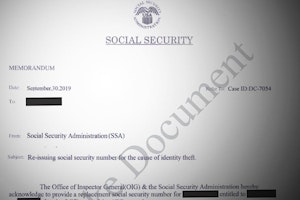
Social Security Scam Mail: Top Tips to Beat Scammers
If you receive a letter from the SSA or IRS, be sure to check for red flags of a scam before you send back any information—it could be a phishing attempt.

Tips to Beat Social Security Phishing Attempts by Scammers
When a government official contacts you, you tend to take it seriously. But beware, imposters are everywhere and trying to steal your information.
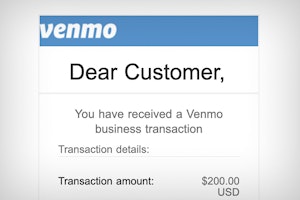
Selling on Facebook Marketplace? Beware of Fake Venmo Emails
Scammers are sending fake Venmo emails to Facebook Marketplace sellers in an attempt to steal login information and money.
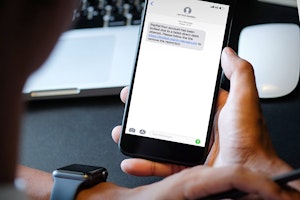
PayPal Text Scam: Identify a Fake & Protect Your Money
Several versions of fake PayPal text messages are being sent to people worldwide. There are a few easy ways to tell which messages are scams and simple things you can do to protect yourself.

Navy Federal Scam Text: What to Know to Avoid Identity Theft
A Navy Federal scam text is going around looking to trick individuals into giving up their personal or account information. Here's what you need to know.
Guides To Protect Against Government & Voting Scams
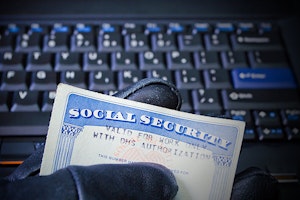
How to Beat Social Security Scams & Keep Your Identity Safe
With thousands of fake Social Security calls made every month, chances are these scammers have targeted you at one point or another.
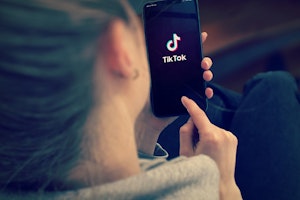
How to Get Verified on TikTok
Securing that little blue checkmark can mean brand collabs, sponsorship opportunities, or protecting your unique content from impersonators.

How to Tell if Nikes Are Fakes: From Tags to the Stitching
Nike is one of the biggest brands targeted by counterfeiters and scammers - be extra careful with Nike products from non-official retailers as you could end up with a fake

Funeral Homes & Prices - What Are The Costs & Your Rights?
Average prices from funeral homes range between $8k to $14k and consumers are meant to be protected by a 'Funeral Rule' - what are your consumer rights?

How to View Your Amazon Archived Orders & Hide Search History
If you share your account with multiple users, archiving your past orders is a good way to keep others from seeing your orders and ruining a surprise or seeing private orders.
News About Government & Voting Scams

Urgent CDC Warning: Eye Drops Linked to 3 Deaths, Loss of Vision
The CDC is warning eye drops users of a rare bacterial infection from 2 brands of eye drops. The infection is resistant to antibiotics and has resulted in the loss of vision, loss of eyeballs and the death of 3 patients.

Banks May Refund More Zelle Scam Victims in 2023
Zelle scams have reached a serious volume. New reports suggest that banks are looking at new refund protections for customers in 2023.

Optus Data Breach - One of the Worst Cyberattacks in Australia
Hackers have gained access to 9.8 million customer records from Optus in Australia, exposing personal information such as driver licence, medicare and passport details.

Roe vs. Wade Overturned: Abortion Rights in Your State
Find out what the overturning of Roe vs. Wade means for abortion rights in your state.
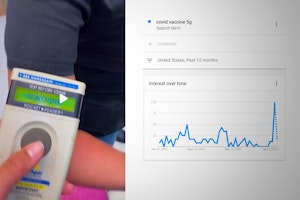
Searches for "COVID Vaccine 5G" Hit All-Time High, But Microchips Definitely Not in Vaccine
The number of people searching for the term "COVID vaccine 5G" on Google has just hit an all-time high, but there's one way to be sure that there are no microchips.
